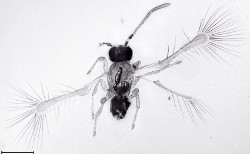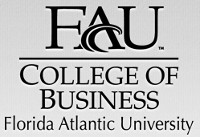|
Dr. Frank J. Jochem, MBA |
||
 Interdisciplinary R&D leader, senior director in biotech startup company; MBA
International Business; team and program building, cross-cultural team leadership.
Interdisciplinary R&D leader, senior director in biotech startup company; MBA
International Business; team and program building, cross-cultural team leadership.
Have built teams, programs, and companies: Combining a career in scientific research, program building, startup companies, and MBA education to apply scientific principles to business questions for an evidence-based corporate management.
Senior Director at |
The World of Business
Nations' Diversification Supports Economic Growth, Say Economists Since 1817, David Ricardo's dogma that nations should specialize on products they can produce more efficiently than others forms the foundation of political frameworks of trade liberalization. Harvard economist Ricardo Hausmann and Italian physicist Luciano Pietronero now challenge this almost 200 years old view.
A nation's product diversity and innovative power, so agree the two modern economists, determine long-term econimic prospects. Wealth is labile where it depends on only a few products, says Pietronero; such as on oil in Saudi-Arabia. Hausmann's analyses suggest: the more diverse a nation's know-how and complexity of products is, the higher is their long-term economic growth. As Hausman says: cheaper someone can always make it; what's China today is Vietnam tomorrow; only nations that are market leaders in numerous niches of specialized, complex products will succeed long-term. Pietronero terms it "economic fitness." These new theories beg the question: Are businesses with a diversified portfolio of complex, know-how-driven products (or services) also better positioned for long-term economic growth, particularly under challenging macroeconomic conditions? |
Science Pebbles Tinkerbella nana, smallest flying insect. How small can a bug be? Scientist found the smallest flying insect in the forests of Costa Rica — the tiny fairyfly Tinkerbella measures less than 0.2 millimeter (1/125th inch). It's size is comparable to that of some protist micro-organisms such as ciliates or amoeba; or to the drop of water in the mist or a drizzling rain. And six times smaller than the proverbial eye of the needle, and three times smaller than the dot at the end of this sentence. Dust mites and a few other non-flying insects are even smaller.
Image source:
Spiegel Online Little WisdomsChildren know no limits except those placed on them by adults. Source: A very wise woman. |
|
With gratitude to:
|

 David Ricardo's 1817 Law of Comparative Advantage, nations gain from
specializing on what they can do more efficiently — challenged by
modern economists?
David Ricardo's 1817 Law of Comparative Advantage, nations gain from
specializing on what they can do more efficiently — challenged by
modern economists?






